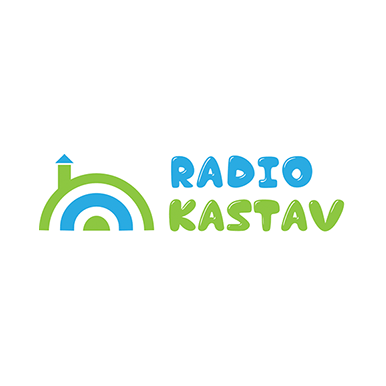
Thank you to everyone for the support you gave us in 2023. We wish you a peaceful and loving, blessed, healthy and successful 2024! Continue supporting us!
- 24.12.2023
- CHILDREN AND YOUTH

Our decade-long working experience has shown us what kind of society we live in from the perspective of persons with disabilities, that it is almost impossible to employ them, without oftentimes violating their other rights in the process.
Although there is a legal and other normative framework for equalizing the opportunities of PWDs, the society at large behaves like an ostrich burying its head in the sand. We avoid facing challenges that mean a better life for others, as much as we can.
Change is possible if we accept a paradigm in which the values of human civilization are present in the adopted international documents, which ensure the protection of human rights and the rights of persons with disabilities; a turn that we have been talking about for a long time in our society, which seems to be moving towards a social and legal approach to persons with disabilities, rather than a compassionate and medical approach. This means that “we” and our environment need to adapt that environment to persons with disabilities, not ask of them to adapt to us and our standards. Where are do we stand on this today, when it is almost impossible to protect the basic rights of PWDs?
At the moment, we are far from putting this approach into practice, because as long as there is an “us” and “them” division, there is also discrimination of “them”.
In a community where relations between people are superficial and with low social capital, where we still have prejudice and stigmatize “different” in general, where we declaratively “brag” that we have done “a lot” for persons with disabilities, at a time when their rights are not protected by all possible legal institutes that ensure the implementation of Conventions and laws, ask yourself what you have done to see, hear and support people who are different in some way.
We know very well who gave their support and who sees and hears persons with disabilities, and who only does it on a formal level, bringing some gifts. We’ve had enough of that. Numerous individuals, associations and public bodies are doing a lot, they are fighting just like us. But there are also those who, by maintaining the outdated paradigm of “custody” for persons with disabilities, harm development and hinder change. Their paradigm is minimalist and “comes down to giving gifts”, encouraging a paradigm of charity, not equality. Mercy is a gift to those who are not equal, but it does not bring change; it keeps the status quo. We don’t want mercy, we want an equal relationship.
That is why we invite you to hear us talk again, to consider why it is important for us to be seen, heard and to act, in order to protect the rights of all the people around us. You will hear us talk again on Thursday, at 12.20 pm, about all the ways in which we are fighting and what models of work for PWDs we are introducing.
1. The signatory states recognize the right to work for persons with disabilities, on an equal basis with others; this includes the right to be able to earn a living from work, freely chosen or accepted in the labor market and in a work environment that is open, inclusive and accessible to persons with disabilities. The signatory states will ensure and promote the realization of the right to work, including those who acquire a disability during employment, by taking appropriate steps, including legislation, with the aims being, among others:
(a) prohibition of discrimination on the basis of disability in relation to all matters and related to all forms of employment, including conditions for finding candidates, hiring and employment, duration of employment, advancement in service and safe working conditions that do not harm health;
(b) protection of persons with disabilities on an equal basis with others in terms of fair and favorable working conditions, including equal opportunities and equal pay for work of equal value, safe and healthy working conditions, with protection from harassment and legal protection in case of complaints;
(c) ensuring the realization of labor and trade union rights for persons with disabilities on an equal basis with others;
(d) enabling effective access of persons with disabilities to general technical programs, as well as professional orientation programs, employment services and professional and continuing education;
(e) promoting opportunities for employment and advancement in the career of persons with disabilities on the labor market, as well as providing assistance in finding, obtaining, keeping a job and returning to work;
(f) promoting the possibility of self-employment, entrepreneurship, development of cooperatives and starting one’s own business;
(g) employment of persons with disabilities in the public sector;
(h) promoting the employment of persons with disabilities in the private sector through appropriate policies and measures, which may include affirmative action programs, incentives and other measures;
(i) ensuring acceptable adaptation of the workplace environment for persons with disabilities;
(j) promoting the acquisition of work experience by persons with disabilities in the open labor market;
(k) promotion of vocational and professional rehabilitation, job retention and return-to-work programs for persons with disabilities.
2. The signatory states shall ensure that persons with disabilities are not kept in a servile or subjugated relationship and that they are, under the same conditions as other persons, protected from forced labor.



Udomljavanjem naših ukrasno-uporabnih predmeta sudjelujete u provedbi naših programa za mlade s teškoćama u razvoju i psihosocijalnom funkcioniranju. Mi ćemo vam zato pokloniti jedan ili više predmeta koje smo sami napravili.